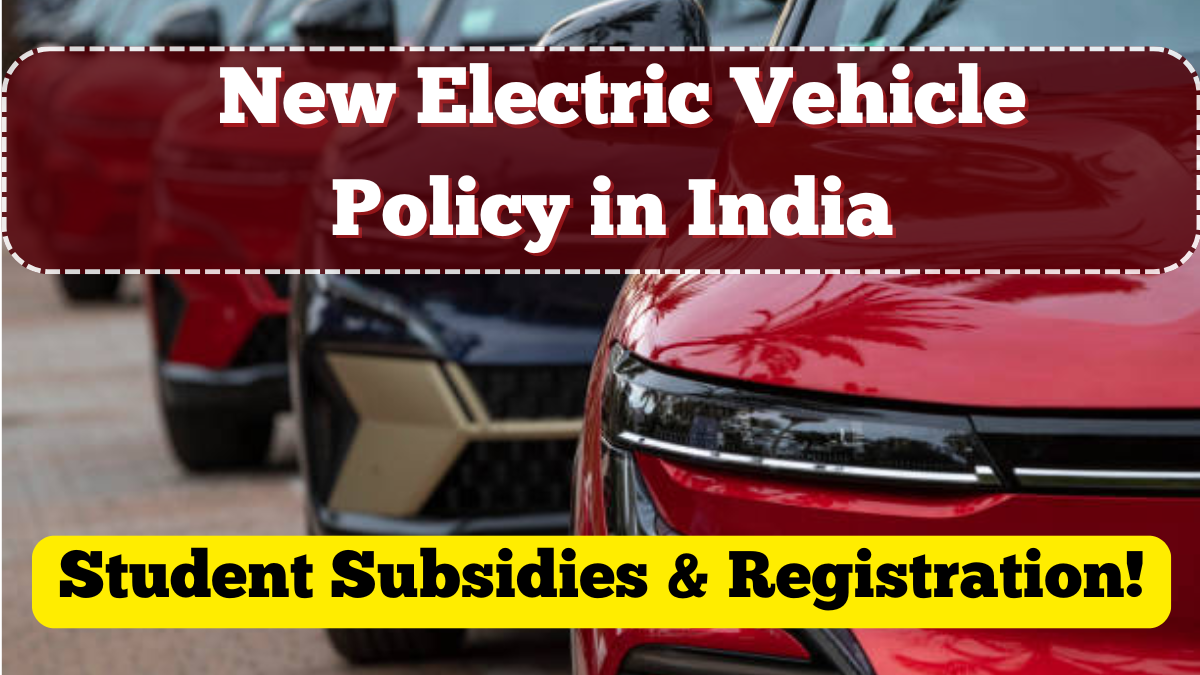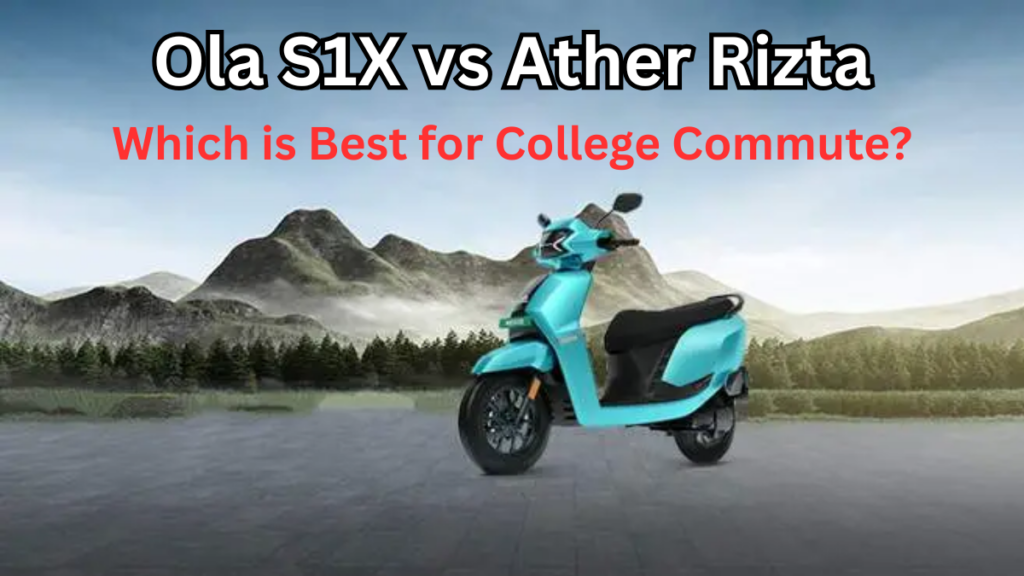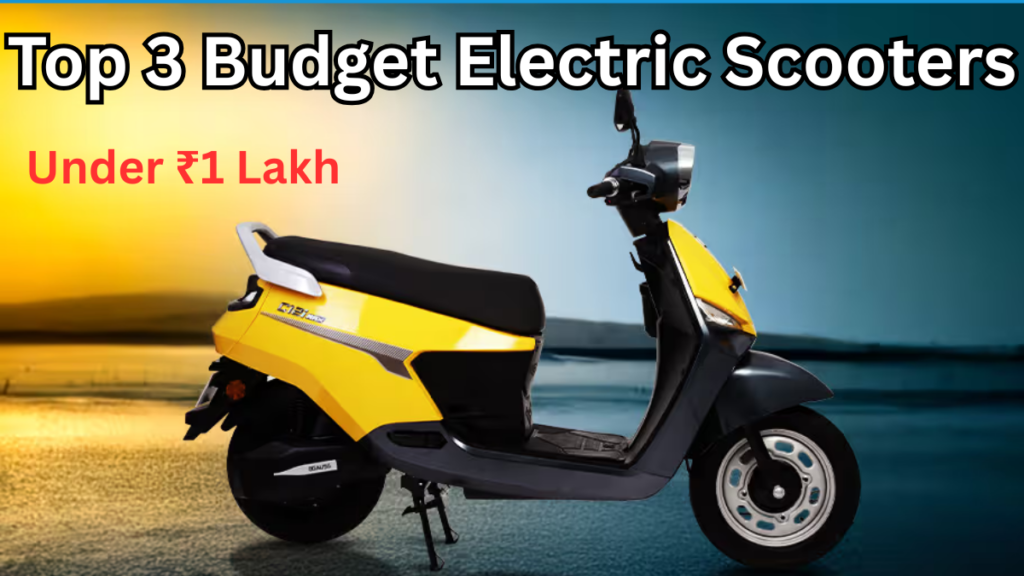The new electric vehicles policy India has officially been implemented from July 2025. The Ministry of Road Transport and Highways (MoRTH), along with the Ministry of Education, has announced a student-friendly EV policy offering financial subsidies and faster registration services. This initiative aims to promote clean mobility, reduce urban air pollution, and encourage the youth to adopt electric vehicles.
The revised EV policy focuses on affordability, accessibility, and infrastructure development. Students in higher education institutions are now eligible for special incentives to purchase e-scooters and e-bikes. EV buyers under this scheme are also offered registration fee waivers, charging station access on campuses, and extended warranties under government-backed programs.

Table of Contents
What’s New in the 2025 Electric Vehicles Policy?

The updated electric vehicles policy India brings several reforms that directly benefit college students, universities, and first-time EV buyers. Key updates include:
-
Subsidy of ₹15,000 to ₹25,000 for registered undergraduate and postgraduate students
-
100% waiver on registration charges and road tax for student-owned EVs
-
Faster approval of registration through Aadhaar-linked student portals
-
EV charging stations set up in over 3,000 universities and colleges
-
Extended battery warranties and insurance subsidies under public-private partnerships
This policy comes as part of India’s broader National Electric Mobility Mission Plan, which focuses on 30% EV adoption by 2030.
Who Can Benefit from the Student EV Subsidy in 2025?
Under the electric vehicles policy India, the student subsidy applies to:
-
Undergraduate and postgraduate students enrolled in UGC or AICTE-approved institutions
-
Students aged between 18–28 years
-
Valid Aadhaar and college-issued ID required for verification
-
Only one EV per student is eligible for the full subsidy
-
Available for e-scooters, e-bikes, and entry-level e-cycles
Subsidies are offered at the point of sale through dealers registered with the Ministry of Heavy Industries. The balance amount is reimbursed by the government directly to the dealer, so students do not need to wait for a refund.
How to Apply and Register for the EV Subsidy
The electric vehicles policy India allows a quick and centralized process for student applicants:
Step |
Action |
|---|---|
Step 1 |
Visit the official EV portal or go to a registered dealer |
Step 2 |
Submit Aadhaar, student ID, and admission proof |
Step 3 |
Choose an EV from the eligible manufacturer list |
Step 4 |
Complete payment after dealer applies instant subsidy |
Step 5 |
Vehicle registration auto-initiated through the EV India portal |
Step 6 |
Receive RC digitally within 48 hours along with subsidy invoice |
Colleges have also been instructed to set up Student EV Help Desks on campus to guide interested buyers and validate their documents.
Government Push for Campus EV Adoption
The electric vehicles policy India also includes incentives for educational institutions:
-
Universities installing solar-powered charging stations will receive grants
-
E-bus services for student transport will be rolled out in 10 pilot cities
-
College parking lots will now reserve 20% space for electric vehicles
-
Institutions promoting EV adoption may get ranking incentives under the NAAC framework
This integrated push makes student communities a major pillar of India’s transition to electric mobility.
FAQs
Who is eligible for the EV student subsidy in India?
All undergraduate and postgraduate students aged 18–28 enrolled in UGC or AICTE-approved colleges are eligible.
How much subsidy can a student get for purchasing an EV in 2025?
Students can receive a subsidy between ₹15,000 to ₹25,000 depending on the vehicle model and manufacturer.
Do I need to apply separately for the subsidy?
No. The subsidy is applied directly at the dealership during purchase after document verification.
Can I buy an EV under this scheme if I already own another vehicle?
Yes, but only one EV per student is eligible for subsidy under the current policy.
Is the registration process different for student buyers?
Yes. Student EVs are given fast-track registration, and road tax/registration charges are fully waived.
Click here to know more.







